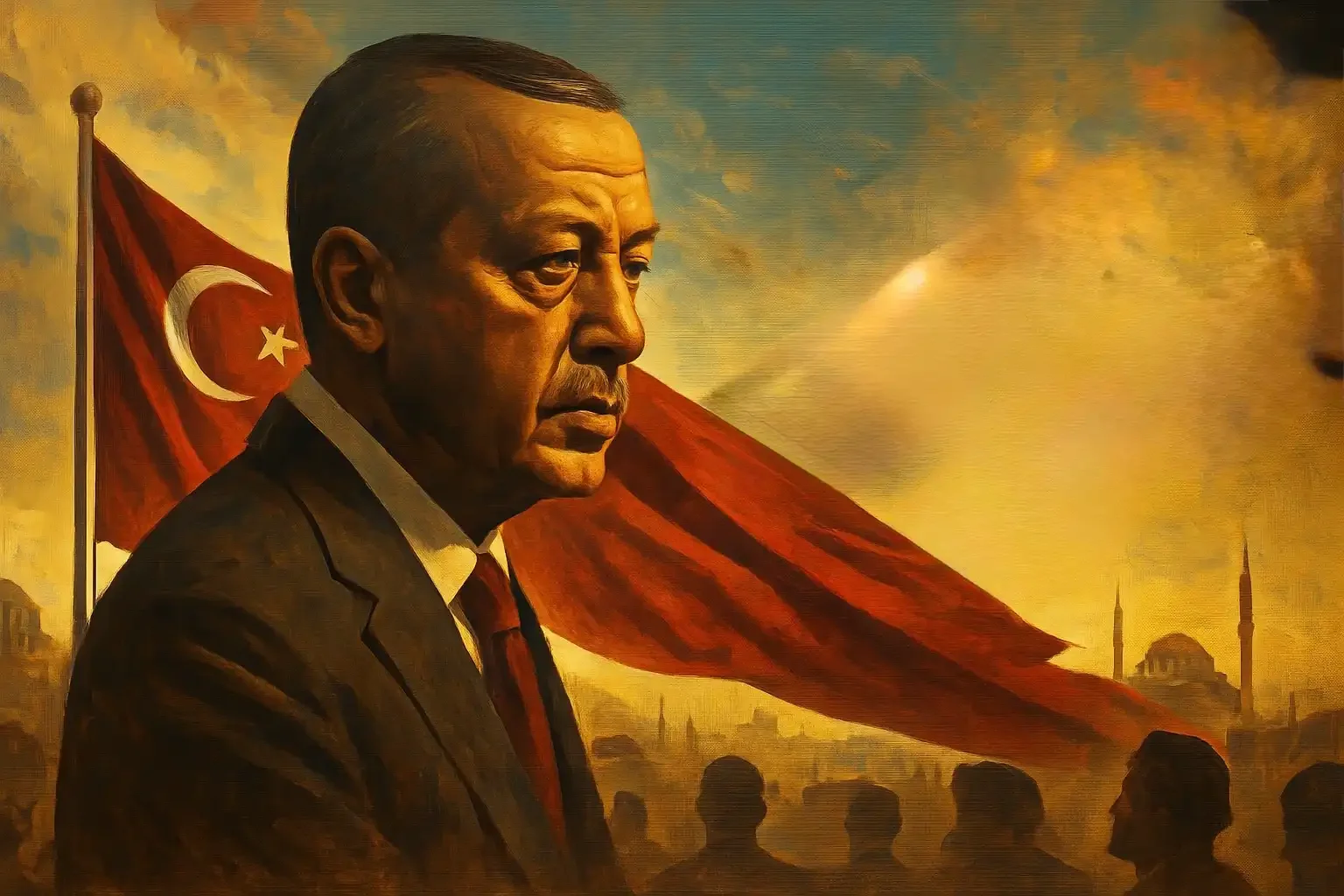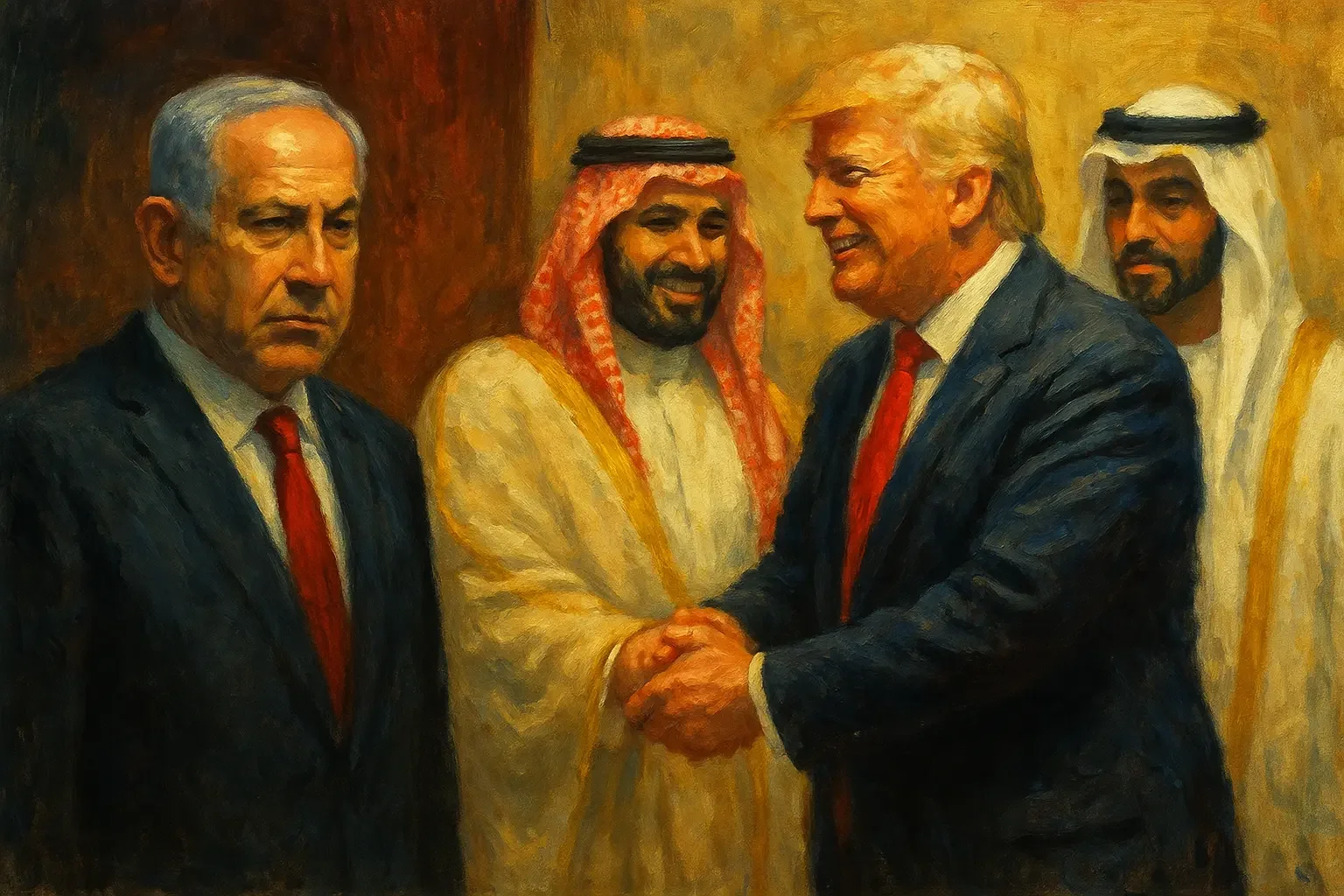Why Is Erdoğan Being So Pragmatic?
TThe welcome news of Tufan Erhürman’s landslide electoral victory in the unrecognized Turkish Republic of Northern Cyprus (TRNC) marks a significant step toward ending one of Europe’s longstanding conflicts. The sectarian divide between the two Cypriot peoples and the illegal Turkish occupation that has maintained it, has long been overlooked by the international community, with attempts at a one-state solution effectively stalled in 2017. The victory of Republican Turkish Party (CTP)’s Erhürman however could perhaps usher in finally a pragmatic resolution welcome to the rest of the world.
But one can’t help noticing among the congratulants, a certain President Recep Tayyip Erdoğan, and one also can’t help noticing that that same president has been incredibly pragmatic in recent months.
The occupation of northern Cyprus by the Turkish state has been one of Ankara’s most entrenched stances. After it invaded in 1974 on the side of the Turkish Cypriots due to the attempted coup by the Greek fascist government to overthrow Archbishop, and then President, Makarios, Turkey has considered its hold on the territory as of vital geopolitical and security interest. This stance has long complicated European-Turkish relations and, of course, strained any possibility of Turkey’s previous ambitions to join the EU. This, and the fact of both ethnic violence and cleansing against the Greek Cypriots who had been living in the north as a result of the invasion, as well as having encouraged hundreds of thousands of mainland Turks to settle in the occupied territory.
Despite this however, the Turkish Cypriots have generally been a lot more progressive and forward thinking than their mainland counterparts. Though Turkey has suffered from significant democratic backsliding and whacky Islamist conservatism, the TRNC has been much more open to more Westernized values. They are generally more pluralistic and open to actually resolving the conflict with their southern neighbors. And this has finally come to a head now with Tufan Erhürman who supports a federal but united Cyprus.
There have been a few geopolitical wins for Turkey in the region in recent years. The 2024 victory of al-Sharaa’s reformed terror group Hayat Tahrir al-Sham (HTS) in Syria has consolidated Turkey’s long-sought-after interests in the ex-Ba’athist state. The cleansing of ethnic Armenians from the Nagorno-Karabakh region by its chief ally, Azerbaijan, in 2023, and the ending of another drawn out conflict, has also been another geopolitical victory for Turkey. And as one of the chief critics of Israel during the Gaza war, it has been able to vie for leadership of the Muslim world, undermining the Arab states.
Turkey has suffered several paradoxical victories and defeats within the last few years.
Under Erdoğan’s presidential rule, the economy has been left in inflationary tatters, with the president’s insane belief that high interest rates are “the mother and father of the devil” driving central bankers and international financial institutions to despair. Turkey has also strained relations with its NATO allies by cynically trying to deny membership for both Sweden and Finland after Russia’s invasion of Ukraine. Indeed, Turkey, in her Neo-Ottoman dream of becoming a world (rather than just a regional) player, has become increasingly more isolated.
On a more serious level, Turkey must also be held accountable for the crimes it has committed during its occupation of northern Syria, where, after seizing the Afrin region in 2018, it has reportedly ethnically cleansed 300,000 Kurds from their homes to replace them with Arab Syrian refugees. This, coupled with recent indiscriminate drone strikes in Somalia, must not be allowed to be distracted from, just because the world’s attention is on Gaza.
So, perhaps in light of this increasing friendlessness, Erdoğan seems to be taking a more pragmatic and even cautious approach.
For instance, after decades of terror, bloodshed, and violent state-ethnic repression of Kurdish identity, Turkey and the Kurdish Worker’s Party (PKK) have moved closer to a peaceful resolution. Abdullah Öcalan, the jailed leader of the Kurdistan Workers’ Party (PKK), made a landmark appeal for the group to disarm and dissolve, prompting the PKK to declare a unilateral ceasefire in March. A symbolic weapons-laying ceremony followed in July in northern Iraq, signaling what many see as a surprising step toward ending the conflict.
This unprecedented development has now been joined by the gracious, if not pleased reaction from Ankara at the results of the Turkish Cypriot election. Indeed, Turkey’s relatively half-hearted interference would suggest some supposed ambivalence toward the possibility of losing their breakaway state to reunification. It would not have been the reaction of previous year’s Erdoğan.
However, this gradual but clear shift in tone for the Turkish president from a brash, demagogic authoritarian strongman to a diplomatic statesman might not reflect a genuine change of heart. In its deep economic crisis, Turkey is merely having to react to the unavoidable constraint on resources that it has over it. Despite the harm it might do to Turkish pride, a shrewd Erdoğan knows that without a more pragmatic tact, he is fast running out of options and friends.
In many ways though, that’s almost encouraging.




